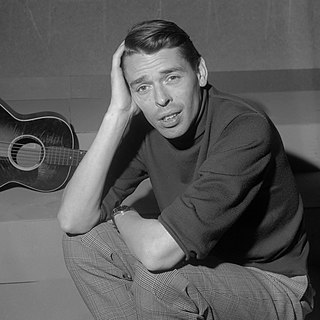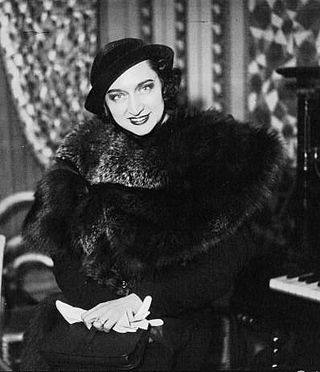
Nicolas Peyrac (born 6 October 1949 in Rennes as Jean-Jacques Tazartez) is a French musician, writer and photographer.

Nicolas Peyrac (born 6 October 1949 in Rennes as Jean-Jacques Tazartez) is a French musician, writer and photographer.
Jean-Jacques spent his youth in the small town of Saint-Brice-en-Coglès in Brittany together with his brothers and parents, both of whom were physicians. As a youngster, not partial to the advance of rock 'n' roll, he had a passion for Ferré and Brel. When his parents divorced in the early 1960s, he went to live with his mother in New York, allowing him to broaden his musical horizon and discover American music. While studying at the Lycée français, he learned to play the guitar. After returning to France to live with his father, he entered a TV talent show but was unsuccessful. Refusing to let him live the life of a "vagabond", his parents pressured him into studying medicine.
During his studies he discovered a passion for photography, which brought him into contact with the music business: through a family friend he had a chance to make record sleeves for artists like Alice Dona, Hervé Vilard and Gilbert Bécaud. The latter introduced him to producer Patrick Legrand (brother of composer Michel Legrand), to whom he showed some lyrics he had written. This started his career as a songwriter, writing for artists like Marie Laforêt and Gérard Lenorman. Soon after he signed a contract with Pathé-Marconi.
In 1974, Jean-Jacques, now using the stage name Nicolas Peyrac, released his first two singles, but to limited or no success.
Just when he was about to lose his record deal with Pathé due to failure of success, Nicolas released the critically acclaimed 1975 song So far away from L.A., which made him an overnight star. Dropping his medical studies almost near the end (in his sixth year), he concentrated on his musical career, releasing his next hit song Et mon père ("And my father") for which he received a 'French Grammy', the prix de l’UNAC. [1] Within a few months, he became part of the most talented musicians of his generation.
Continuing the 1975 success, Nicolas released several albums, and was supporting act for stars like Serge Lama, Marie-Paule Belle et Dalida. He also regularly headlined, taking him all the way to Japan.
After the death of his mother in 1978, to whom he dedicated his fifth album J't'aimais, j'ai pas changé ("I loved you, I haven't changed"), Nicolas continued touring and releasing albums, but the times of hit records seemed a thing of the past. Although writing songs for stars like Johnny Hallyday and Plácido Domingo, his own career lost ground, and by the mid-eighties he focused on different passions, writing novels and directing. At the end of the eighties, Nicolas faced a relational crisis and professional difficulties, and he fell into a severe depression, abandoning the music scene and failing to finish his novel and songs he was writing.
In 1992, Nicolas' close friend and colleague Michel Berger suddenly died of a heart attack, prompting him to take control of his life again. He started writing again, helped by former colleagues and friends, and released an album less than a year later. This marked his return to the spotlights, although it took some time for him to be fully back on track.
With his father's help, Nicolas emigrated to Montreal, Canada, giving him new energy and motivation. It is there he finished his novel, Qu'importe le boulevard où tu m'attends ("Whatever boulevard you wait for me"), published in 1994. In 1995, he temporarily returned to his father's home in Brittany, writing large parts of his 1995 album J'avance ("I progress"). Following its release, Nicolas extensively toured Quebec, and the following year he returned to France, starring at the Casino de Paris and the Bobino.
A conflict with his record company led to a two-year delay of his next album, Autrement ("Otherwise" or "Differently"), which was released in 1999 by an independent label. Although positively received by the critics, it failed to be noticed by the public.
Following the release of Autrement, Nicolas kept writing and recording almost non-stop. Through a friend he met his new manager, Pierre Illias, who arranged a record deal with BMG. A year later he released a new album, Seulement l'amour ("Only love"), followed in 2006 by Vice versa, both albums accompanied by extensive touring. 2006 also saw the publishing of his second novel, J'ai su dès le premier jour que je la tuerais ("I knew from day one I'd kill her"). In 2009 he released his latest album, Case départ ("Square one"), again followed by a tour, and his third novel, Elsa.
| Title | Title | Peak chart positions |
|---|---|---|
| FRA [2] | ||
| 2006 | Vice-versa | 116 |
| 2009 | Case départ | – |
| 2011 | Monterey | 108 |
| 2013 | Et nous voilà! | 88 |

Jacques Romain Georges Brel was a Belgian singer and actor who composed and performed theatrical songs. He generated a large, devoted following—initially in Belgium and France, but later throughout the world. He is considered a master of the modern chanson.

Sylvie Vartan is a Bulgarian-French singer and actress. She is known as one of the most productive and tough-sounding yé-yé artists. Her performances often featured elaborate show-dance choreography, and she made many appearances on French and Italian TV.

Françoise Madeleine Hardy is a retired French singer-songwriter. Mainly known for singing melancholic sentimental ballads, Hardy rose to prominence in the early 1960s as a leading figure of the yé-yé wave. In addition to her native French, she also sang in English, Italian and German. Her career spanned more than fifty years with over thirty studio albums released.

Calogero Joseph Salvatore Maurici, better known as Calogero, is a French singer.

Frédérique Hoschedé, better known by the stage name Dorothée, is a French singer and television presenter. She was a continuity announcer on French public broadcaster Antenne 2 from 1977 to 1983, but she is best known for having presented children's television shows like Les mercredis de la jeunesse (1973), Dorothée et ses amis (1977–1978), Récré A2 (1978–1987), and especially Club Dorothée (1987–1997), which totalled up to about thirty hours of broadcast per week and popularized Japanese animation in France.

Alain Bashung was a French singer, songwriter and actor. Credited with reviving the French chanson in "a time of French musical turmoil", he is often regarded in his home country as the most important French rock musician after Serge Gainsbourg. He rose to prominence in the early 1980s with hit songs such as "Gaby oh Gaby" and "Vertige de l'amour", and later had a string of hit records from the 1990s onward, such as "Osez Joséphine", "Ma petite entreprise" and "La nuit je mens". He has had an influence on many later French artists, and is the most awarded artist in the Victoires de la Musique history with 12 victories obtained throughout his career.

Salvatore Knight Adamo is a Belgian-Italian musician, singer and composer, who is known for his romantic ballads. Adamo was born in Comiso, Sicily, Italy, and has lived in Belgium since the age of three, which is why he has dual citizenship. By 1964, he was the world's best-selling artist behind The Beatles. Through his career, he sold more than 80 million albums and 20 million singles worldwide, making him the best-selling Belgian artist of all time, and one of the most commercially successful musicians in the world.

Gaston Ghrenassia , known by his stage name Enrico Macias, is a French singer, songwriter and musician of Algerian Jewish descent.

Pascal Michel Obispo is a French singer-songwriter.

Gilles Servat is a French singer, born in Tarbes in southern France in 1945, into a family whose roots lay in the Nantes region of Brittany. He is an ardent promoter ardent of the Breton culture, and sings in both French and Breton, as well as the other celtic languages, and was a member of Dan ar Braz's Héritage des Celtes. He is also a poet and novelist.

François Feldman is a French singer. He had a great success in the 1980s and the 1990s in France.

Damien Sargue is a French pop singer and actor. He is best known for his role as Romeo in Gérard Presgurvic's Roméo et Juliette, de la Haine à l'Amour.
Les Chats Sauvages was a French rock and roll band, that was formed in 1961. Together with Les Chaussettes Noires, they were among the first outfits to perform rock and roll music in France.
Charles Dumont, is a French singer and composer. Dumont is best remembered for writing or co-writing over 30 of the most well-known songs recorded by singer Édith Piaf, including "Non, je ne regrette rien".

Georges Conchon was a French writer and screenwriter.

Christine Charbonneau was a French Canadian singer and songwriter.
Henri Betti, born Ange Betti, was a French composer and a pianist.
Charles Aznavour, released in December 1961, is the eighth French studio album by the French-Armenian singer Charles Aznavour. This album is also known under the title "Il faut savoir". It was in TOP 10 charts in France, Italy, Belgium, Israel and other countries. The album includes songs by Charles Aznavour, Georges Garvarentz, Michel Legrand, Eddie Barclay and others.

Lys Gauty was a French cabaret singer and actress. Her most significant work came in the 1930s and 1940s as Gauty appeared in film, and recorded her best-known song, "Le Chaland qui passe", which is an interpretation of an Italian composition.

Barbara Piévic, known professionally as Barbara Pravi, is a French singer and songwriter. After signing with Capitol Music France in 2015, she released five extended plays with the label. She represented France in the Eurovision Song Contest 2021 with the song "Voilà", securing second place, the best result for France since 1991. Her debut album On n'enferme pas les oiseaux was released on 27 August 2021.